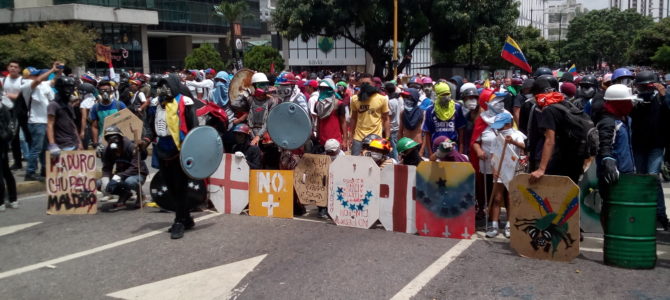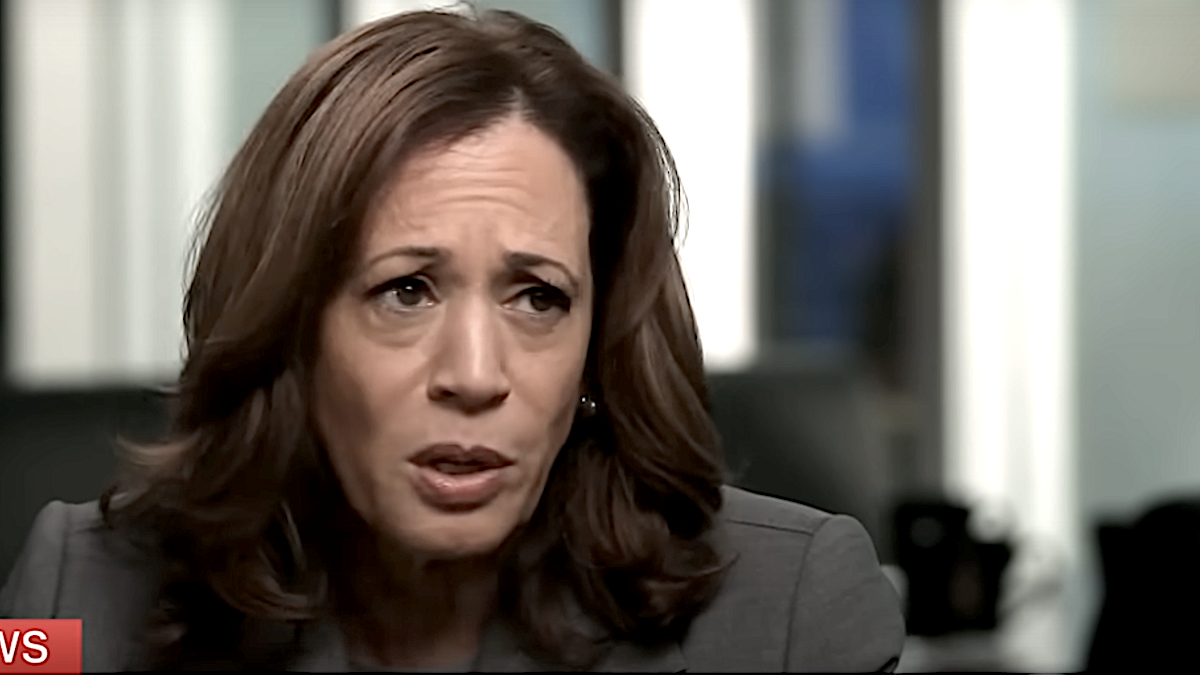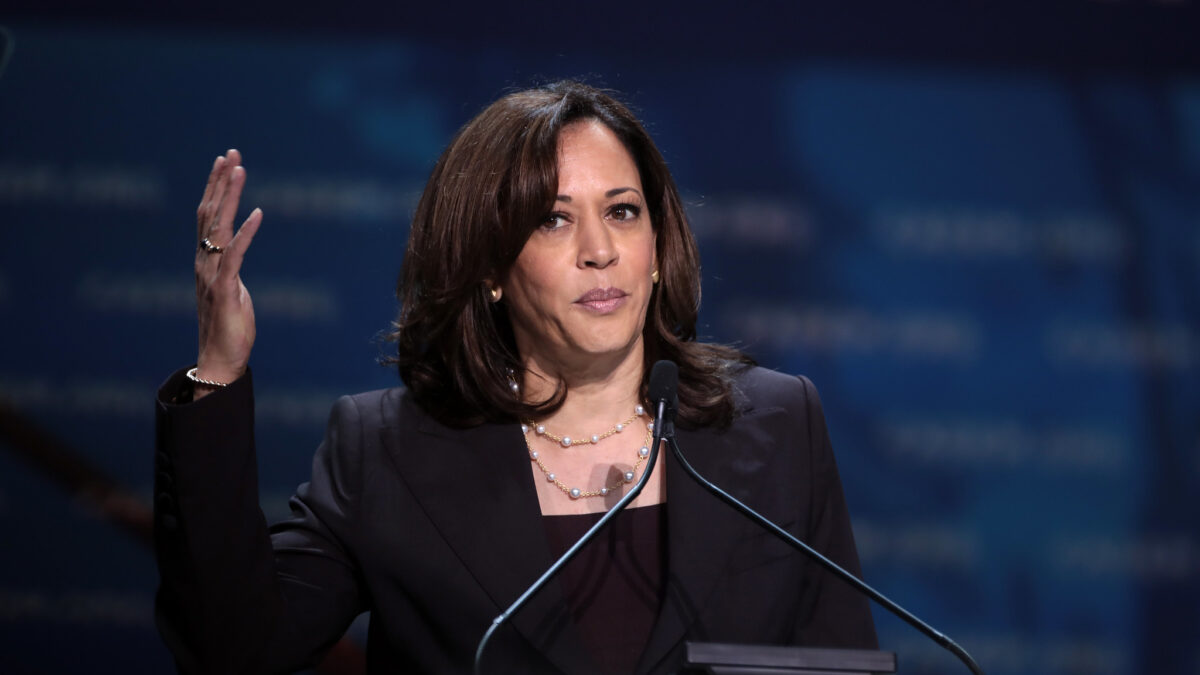
Vermont Senator Bernie Sanders recently rolled out his Obamacare fixer-upper plan, called “Medicare for all.” He wants to extend Medicare—currently a federal government-run health insurance for seniors and the disabled—to all Americans.
But the socialist from Vermont doesn’t just want to increase the number enrolled in Medicare. He wants more. Under his plan, in additional to medical care, all Americans would receive extended coverage such as dental and vision, with “no more co-pays, no more deductibles and no more fighting with insurance companies when they fail to pay for charges.”
Such a push for socialized medicine used to be considered too wacky an idea to warrant any serious discussion. Yet 16 Democratic Senators—some of whom harbor potential presidential ambitions, such as Cory Booker and Elizabeth Warren—eagerly lent Bernie their support.
It’s time for a reality check for Bernie and his supporters. All we need to do is look to Venezuela, the socialist country that once received high praise from Senator Sanders because it implemented things the American left is craving, such as free healthcare.
Venezuela Once Offered A Lot Of Free ‘Stuff’
Once upon a time, Venezuela was the richest country in Latin America. Its wealth wasn’t simply the result of an abundant supply of natural resources such as oil; Venezuelans in 1950s enjoyed a great deal of economic and political freedom. There was universal suffrage, protection of private property rights, and freedom of the press. As a matter of fact, “The Index of Economic Freedom for Venezuela—on a scale from 1 to 5, where 1 is the freest—was 1.5 in 1950 and 1.6 in 1955.” In this environment, Venezuela’s private sectors flourished.
Unfortunately, Venezuela had the “bad luck” of electing a string of terrible and corrupt leaders who were determined to take the country down the road to socialism. First, there was Romulo Betancourt, who was elected president in 1959. Romulo was a onetime communist who later posed as a social democrat. Some of his signature socialist policies included using land reform to strip away landowners’ property rights, creating a national oil company, tripling the income tax rate, and introducing price control measures such as rent control. The country’s pivot to socialism was continued by Betancourt’s successors.
In 1999, Hugo Chavez rode the public outrage against the establishment to power. Although he campaigned against “corrupted policies in the last 40 years,” Chavez not only continued the same disastrous policies, he went further under a movement called Chavismo.
Hugo Chavez’s Free Education And Free Health Care
Chavez firmly believed that government must manage the economy through central planning. So he drastically increased state control of Venezuela’s economy by nationalizing thousands of private companies. To keep the population happy, he used income from nationalized oil companies to establish a socialist paradise.
Education was made free at all levels, to all Venezuelans. New universities were created with open enrollment policies so that anyone who wanted a university degree could get one, regardless of prior educational experience or qualifications. Venezuelans also gained access to free comprehensive health care through a government program called Barrio Adentro. As a matter of fact, health care as a social right was written into the Venezuelan Constitution and was ratified in 1999, the year Chavez assumed the presidency.
Besides handing out free stuff, Chavez also used price controls to keep many things cheap for ordinary Venezuelans. For example, two pounds of rice cost only 12 cents, a two-pound bag of sugar cost 40 cents, and for a gallon of gas, you only had to pay 15 cents.
Life was good for Venezuelans—for a while. Senator Bernie Sanders couldn’t hide his admiration for Venezuela’s socialist model. He once wrote that “The American dream is more apt to be realized in South America, in places such as Ecuador, Venezuela and Argentina, where incomes are actually more equal today than they are in the land of Horatio Alger.”
But neither Chavez nor Bernie Sanders seems to understand Econ 101: when you keep a product’s price artificially low or even give it away, consumer demand will go up; waste will increase; producers, talent, investors, and their capital will go elsewhere for a better return. Eventually, there will be no product left to consume.
What Venezuela’s Free Health Care Looks Like Now
After Chavez passed away in 2013, Nicolás Maduro assumed power. He continued Chavez’s socialist policies, even though the economy he inherited was already a mess. Maduro has neither Chavez’s charisma nor his good luck. After oil prices peaked at $100 per barrel in 2014, they plunged to $50 and below, and haven’t recovered since. But most importantly, economic laws (such as supply and demand), once violated, always induce serious consequences.
Unable to pay for subsidies and welfare programs, Maduro kept printing more money. Consequently, Venezuela suffers the world’s worst inflation rate, at more than 700 percent. The country’s currency totally collapsed. Since Venezuela destroyed its private sector and neglected investments in its public sector, this socialist paradise now suffers a shortage of almost everything: food, medicine, detergent, and even toilet paper. It has to import many basic items, including oil (despite having the world’s largest oil reserve).
But imports have dried up because the government has a shortage of hard currencies like U.S. dollars. The widespread shortage is reflected through empty shelves in government stores and soaring prices in black markets. Water rationing and electricity blackouts have become a daily routine. Venezuela also has the second highest murder rate in the world.
Venezuelans still have access to free health care—except they don’t receive much care. The country suffers an 85 percent shortage of medicine and a 90 percent deficit of medical supplies. Fewer doctors are available to provide care, too. By 2015, at least 15,000 doctors had left the public health care system because of shortages of drugs and equipment and poor pay.
Consequently, infant mortality increased 30 percent, maternal mortality climbed 65 percent and cases of malaria went up 76 percent. People in war-torn countries like Syria receive better health care than Venezuelans do nowadays.
Maduro’s Solution: ‘Let Them Eat Rabbit’
The list prices of basic food items at government-run stores are still cheap—except Venezuelans can’t get them, because shelves are empty. Whenever food does become available, people can only get a limited amount under the government’s strictly-enforced food ration. Ordinary Venezuelans are starving. Being fat is a privilege in Venezuela. At least 75 per cent of the population has lost an average of 19 pounds in 2016 and now at least a third of Venezuelans, around 9.6 million, is eating two or fewer meals per day. More Venezuelan women are working at brothels at younger ages because of hunger. Severe malnutrition furthers the spread of disease and infant and maternal deaths.
President Nicolás Maduro, who doesn’t appear to have lost any weight despite the prolonged food shortage in his country, came up with a plan to solve his nation’s hunger problem. He went on state TV recently to announce “a ‘rabbit plan’ had been approved,” so Venezuelans should breed and eat rabbits as an important source of animal protein.
Apparently, one thing Venezuela doesn’t have a shortage of is delusional leaders. Opposition leaders immediately called the Maduro’s rabbit plan a “bad joke.” Perhaps it never occurred to Maduro that if ordinary Venezuelans are searching dumpsters for food, they won’t have anything to feed rabbits.
Socialism Has Never Worked, and Never Will
Maduro’s “let them eat rabbit” proposal reminded me of Mao’s China. During the famine (1959-1961), Mao’s minions told Chinese people to eat sweet potato leaves, a product that was used to feed pigs, to fill up their empty stomachs. Come to think of it, like Maduro, Mao was probably the only person in China who didn’t lose weight during the famine. Isn’t it interesting that the “dear leaders” of socialist countries are all well-fed while their people lose weight and die due to starvation? So much for equality.
Whether you consider the former Soviet Union, Mao’s China, Kim’s North Korea, Fidel’s Cuba, or Maduro’s Venezuela, there’s undeniable evidence that socialism, no matter where it’s practiced, always goes down the same way. And it always begins with great promises of free stuff.
Margaret Thatcher once said, “The trouble with Socialism is that eventually you run out of other people’s money.” When socialism runs out of other people’s money and has no more free stuff to give, it ends with an economy in shambles, widespread shortages, hunger, and misery.
So to those who want “Medicare for all”: get used to eating rabbits now, because socialism sucks and you’d better be prepared.









